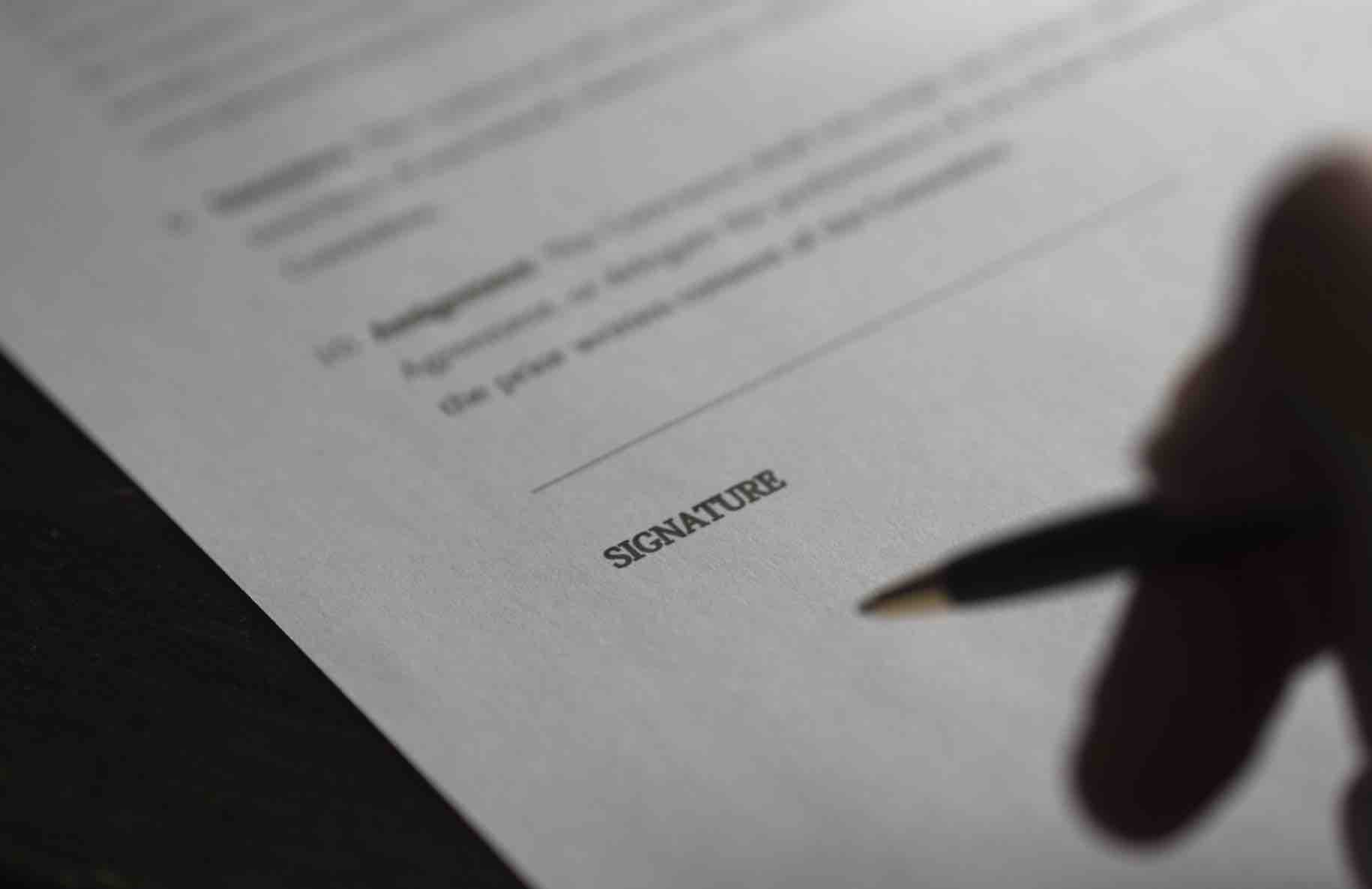Planning for the Future: Understanding the importance of a Will, Advance Directive and POA for Advance Care Planning
30 Jan 2023
26 Nov 2019
min read

A. Advance Care Planning
We all love our family. We all want to provide for our family as best we can. We all want to ensure our loved ones are secure, happy and being cared for in life. That is where advance care planning comes in. Advance care planning can minimise the stress for your family during difficult times.
In addition to caring for our family, we should also consider our own end-of-life care. Death is often a taboo subject. No one enjoys thinking about their own death. However, being prepared for the worst is important because our death inevitably impacts our loved ones severely. It is not just death that we have to worry about. Being physically or mentally incapacitated also creates a great burden for our family.
1. What is the definition of Advance Care Planning?
Advance care planning is the process of communication between you, your healthcare provider, family members or caregivers in relation to the appropriate end-of-life care you wish to have before you are not of sound mind and can no longer make a decision. You can express your values, life goals, and treatment preferences for future care, medical decisions, health care decisions or personal care, or pre-instruct to refuse life-sustaining treatment.
2. How to Document Advance Care Planning?
The following legal document(s) are relevant in the process of Advance Care Planning:
- Advance directive - also known as a "Living Will", “Advance Decision to Refuse Treatment” (ADRT) or “Do Not Resuscitate“ (DNR) order to indicate your personal preferences regarding future medical care.
- Enduring Power of Attorney - also known as Durable Power of Attorney, Continuing Power of Attorney, Lasting Power of Attorney in other jurisdictions to appoint an attorney to manage financial affairs in case of your mental incapacity.
- Last Will and Testament - kicks in upon your death for the distribution of your estates to your loved ones.
Having these 3 documents in place can help minimise the stress, financial issues, life or death decisions and disputes which your loved ones may face in times of crisis. These 3 documents are essential to protect your family and to give them peace of mind. Whilst most people know about the importance of making a Will (although may not yet have one in place), few people have considered or even heard of advance directives or enduring power of attorney, which are essential documents for caring for life prior to death.

B. Advance Directive
1. What is an Advance Directive?
An advance directive is a statement, usually in writing, by which a person indicates at a time when they are mentally competent what medical treatment and personal care they would like to receive or refuse at a future time when they are no longer mentally competent. It sets out a roadmap on how you would want to be treated if you were to become seriously ill, suffering from a medical condition and unable to communicate your health care wishes.
Would you like to be cared for in a hospital, elderly home or at home? Under what circumstances might you want health care professionals to stop trying to resuscitate you? When might you want to refuse life-sustaining treatment even if it would hasten your death? You can spell that out now so your loved ones will not need to make these difficult decisions later on.
2. Legality of an Advance directive
Depending on the jurisdiction, there may or may not be legislation to give such requests legal standing. Demands could include, for example, to not be given cardiopulmonary resuscitation if such a situation arises.
Advance Directives may or may not be a legally binding document depending on the jurisdiction, but the doctors will generally follow the stated wishes or assign the case to another doctor if the wishes go against the doctor's professional beliefs.
An Example of an Advance Directive: https://docpro.com/doc962/advance-directives-living-will
3. Formalities Required for an Advance Directive
To be valid, advance directives must meet the local requirements regarding notarization or witnesses. For example, a witness must not be a person who is a beneficiary under –
- The Will of the maker of the Advance Directive; or
- Any policy of insurance held by the maker of the Advance Directive; or
- Any other instrument made by or on behalf of the maker of the Advance Directive.
There may be specific local requirements, for example, in some jurisdictions, one of the witnesses must be a medical practitioner, etc. Please consult a local solicitor as each jurisdiction may be different. Registration may also be required to inform health care providers of the existence of an Advance Directive.

C. Enduring / Lasting / Continuing/ Durable Power of Attorney
1. What is an Enduring / Lasting / Continuing / Durable Power of Attorney?
Different jurisdictions have different names for this document. The reason it is called an “enduring / lasting / continuing / durable” power of attorney (“EPA”) is that whilst most powers of attorney would cease to be effective once the donor (i.e. the person who wishes to give his/her power of attorney to someone else) loses mental capacity, the EPA will endure / survive the subsequent mental incapacity of the donor.
The EPA is a legal instrument that is made whilst the donor is still mentally capable, to appoint attorney(s) to take care of the donor’s affairs in the event he/she subsequently becomes mentally incapacitated. This is different from an Advance Directive and would be suitable where you may not be ready to make your Advance Planning decisions but wish for someone else to make the decisions on your behalf when the time arises.
2. Legality of an EPA
It is important to check whether your jurisdiction has enacted legislation to ensure that the EPA will remain effective if the donor becomes mentally incapacitated and can continue to give the attorney(s) the power to take care of the donor’s affairs despite such incapacity.
In most jurisdictions, there are two main types of EPA you can make in advance in case of incapacitation or where you lack the mental capacity to make decisions:
(a) EPA to appoint an attorney(s) to make medical, personal care or treatment decisions, 2 examples are below:
(b) EPA to appoint an attorney(s) to take care of financial decisions, 2 examples are below:
The latter is particularly important if you are alive but incapacitated (i.e. the Will will not kick in). The easiest way for a trusted person, acting on your behalf, to access bank accounts, savings accounts, pensions, or other financial accounts in your name is through an EPA.
Please note that in certain jurisdictions, it is legal to grant a general EPA to an attorney with sufficiently wide powers to manage all the affairs of the donor, whereas, in other jurisdictions, it may invalidate the EPA. One may wish to seek local legal advice on this point.
In addition, if the EPA is drafted to take effect subject to the incapacitation of the donor, the attorney(s) may be required to prove the donor's lack of mental capacity upon such circumstances.
3. Formalities of an EPA
The formalities of an EPA are similar to other POAs. Where most Power of Attorney may be invalidated when the donor loses mental capacity, the Enduring Power of Attorney continues to be valid. In certain jurisdictions, there are strict requirements on the formalities of an Enduring Power of Attorney (please check with a local solicitor as each jurisdiction may be different), for example:
- It will need two witnesses - a registered medical practitioner and a solicitor;
- The witnesses must not be the donor, the attorney(s) or related by blood or marriage to the donor or the attorney(s);
- The attorney(s) cannot be the witnesses or related by blood or marriage to the witnesses;
- Both witnesses (i.e. the medical practitioner and the solicitor) must witness the signature together and each must certify that the donor is mentally capable.
In certain jurisdictions, there are also registration systems in court/government offices for the Enduring Power of Attorney to be effective. In addition, some jurisdictions may require it to be in a prescribed form for it to be valid.

D. Last Will and Testimonial
1. What is a Will and who can make one?
A Will sets out how a person's assets are to be distributed after his or her death. Any person over the age of 18 may make a Will. Wills are not just for the wealthy – everyone with assets should have one, although, in reality, the majority of adults do not. Regardless of the number of assets you have, a Will can ensure that your real and personal properties go to family or friends of your designation. If you own a business, a Will can help ensure a smooth legal transition of the business. If you are married or have minor children, it is vital you make a Will to ensure that your children's legal guardian is one you trust should anything happen to you before they reach adulthood.
2. What happens if you don’t leave a Will?
In most common law countries, if a person leaves a Will after death, he or she is said to have died "testate". A "Probate" will be granted to the "Executor(s)" under the Will to represent the estate, which will have immediate effect.
If the deceased dies without a Will, he or she is said to have died "intestate". A letter of "Administration" will need to be applied for from the court, which can be a cumbersome process and may cause undue stress to the deceased’s family. The distribution of the assets and who can administer the estate will be governed by the laws of intestacy, which may differ from what you would have intended or even expected.
For example, most people would assume that everything would go to his / her Spouse upon death. This is not always the case under the laws of intestacy and half of the estate may in fact go to his / her siblings. In addition, the next-of-kin(s) would have priority in applying to the court to become the administrator(s), which may not always be the person whom the deceased would have trusted for the role.
3. What are the 9 advantages of having a Will?
https://docpro.com/blog/advantages-will
4. How to prepare a Will?
You can ask a solicitor to prepare a Will for you. This is recommended if your Will is complicated and there may be a chance of future disputes (e.g. having a second family after a previous divorce). The advantages of going to a solicitor are:
- Solicitors generally have more experience in drafting Wills;
- Should it be necessary to prove (after death) intention and mental capacity at the time the Will is prepared and signed, the solicitor can attest to it; and
- Solicitors can witness, keep and register the Will, and can produce the Will upon death.
You can save legal costs by preparing your own Will, particularly if your Will is fairly straightforward. A Will does not need to be legalistic, on any special paper, or signed and sealed by a lawyer. A Will is valid so long as:
- It clearly states your intention in the distribution of your estate;
- You have signed and dated the Will in front of two independent witnesses present at the same time and such witnesses are not beneficiaries under the Will; and
- You have the mental capacity to make the Will and are not under any undue influence or duress.
If you choose to create your own Will, below are four forms of Will you may want to use as reference depending on your situation:
|
Documents |
When to Use |
Web Links |
|
Last Will and Testament with Spouse and Children |
Last Will and Testament made by an individual with a spouse and children. Give everything to the spouse first, but if the spouse died first, give all to the children in equal share. |
https://docpro.com/doc579/last-will-and-testament-with-spouse-and-children |
|
Last Will and Testament with Children and No Spouse |
Last Will and Testament made by an individual with children but no spouse. Give everything to children and their descendants in equal shares. |
https://docpro.com/doc580/last-will-and-testament-with-children-no-spouse |
|
Last Will and Testament with Spouse and No Children |
Last Will and Testament made by an individual with a spouse but no children. Give everything to a spouse but if the spouse died first, give everything to a designated charity / in accordance with the laws of intestacy. |
https://docpro.com/doc582/last-will-and-testament-with-spouse-and-no-children |
|
Last Will and Testament with No Spouse and No Children |
Last Will and Testament made by an individual with no children and no spouse. Give everything to siblings and their descendants, otherwise give everything to designated charity / in accordance with the laws of intestacy. |
https://docpro.com/doc581/last-will-and-testament-no-spouse-no-children |
The following formalities should be followed for the Will (some jurisdictions may have different number or age requirements, please check with a local solicitor):
- All your intentions should be produced in writing;
- The Will is to be signed by you, witnessed and signed by two witnesses (see below) who are present at the same time;
- Your signature and those of the witnesses should preferably be placed at the end of the Will;
- The Will should be dated when it is signed;
- The two witnesses should (i) be over the age of 18 or above, and (ii) not be a beneficiary under the Will. If a beneficiary or his/her spouse witnesses the Will, the gift to the beneficiary under the Will will be forfeited;
- An executor can however also be a beneficiary under the Will.
For more on how to write a Will, please go to:
How to make Will and Testament? 9 Steps to Get Started
5. Matters to consider when preparing a Will
For more information, please go to:
https://docpro.com/blog/issues-preparing-will
The first step in preparing a Will is to gather information. You should also keep copies of existing wills, trusts, divorce decrees, prenuptial agreements and any other legal documents that might affect your Will. If you decide to create a Will yourself using DocPro, you can sit down in front of your computer with all of the above information to produce the Will. If you feel more comfortable having a solicitor do it, you will need to be prepared to take the above, and perhaps other information with you, to your appointment.
Another common question is which jurisdiction should govern the administration and succession of the estate if some foreign elements are involved. For example, a deceased might have a property in a foreign country, or a foreigner might have a property in a country in which he is not a resident. Generally speaking, the following rules would apply in Common Law jurisdictions:
- “Real Property” / “Immovable Property” (e.g. house, apartment, building, land, real estate) is governed by the laws of the place where the property is located.
- “Personal Property” / “Movable Property” (e.g. money, shares, personal belongings) is governed by the laws of the deceased's place of domicile as at the date of death.
As such, it is a good idea for a person to have a Will not only in the country of residency but also in each jurisdiction where he/she owns real property.
Please ensure that you revisit your Will periodically so that your Will still reflects your desires. Please also ensure your family members and your executor know where your Will is kept.
E. Conclusion
In conclusion, Wills and Advance Care Planning should be applicable to all adults at all stages of life, and in particular, the elderly. However, very few people have these in place. Wills and Advance Care Planning have been proven to reduce disputes, stress and anxiety for families, and can lead to improvements in elderly and end-of-life care.
Whilst the information above would apply to most common law jurisdictions, you may wish to check with your local solicitor to see if there are any jurisdiction-specific rules that would apply in your locality.
Please note that this is just a general summary of the position under common law and does not constitute legal advice. As the laws of each jurisdiction may be different, you may want to speak to your lawyer.
Keywords:

